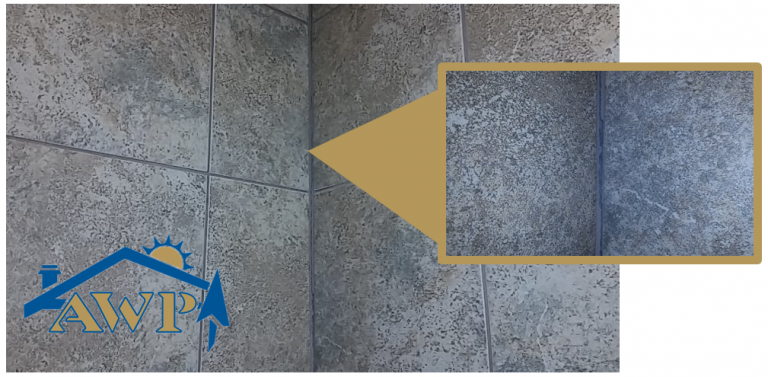It is disappointing. It is frustrating. You see your carefully applied grout begin to crack or even start to chip off and fall to the ground. What causes cracked grout and what can you do about it?
Causes of Cracked Grout
There are several possible reasons why your grout may be cracking. Some of the reasons may have to do with how the grout was prepared and/or the tiles laid:
- When dry grout is mixed with water, microscopic holes are produced as the water evaporates and the grout hardens. When mixed properly, this is not a problem, but if the mixture is too thin, the holes become too large and cracking can occur.
- Thinset is a glue that is applied over mortar to make tiles adhere more firmly to the mortar. If it is applied too thin, air pockets can form between the tiles and the mortar. These can cause the grout to crack.
- If water is added to grout after the grout has begun to set, it weakens the mixture, causing the grout to crack and crumble.
- If grout is not applied properly, it can easily crack after it has dried. It must be applied deeply into the cracks between the tiles. There should be no air pockets between the grout and the wall or the sides of the tiles.
How to Fix Cracked Grout
If any of these are the cause of your cracking grout, the only solution is to re-grout. Using a flat screwdriver, first remove the grout surrounding the area where cracks have appeared and then continue removing grout until it becomes difficult or impossible to remove. Since grout is usually mixed in small batches, you may find that you don’t have to re-grout the entire wall, but don’t settle for just filling over the cracked areas. They will create problems later. Also, be aware that if you have used colored grout, it will be very difficult to match the color exactly. If thinset was the problem, you may have to consider retiling your walls, depending on the severity of the problem.
Another frequent cause of cracked grout is movement. This usually occurs close to doors and windows. Every time the door or window opens or closes, its frame will move. If you have identified movement as the likely cause, try removing all the grout surrounding the door and replacing it with a silicone based grout. Unlike ordinary grout, silicone based grout is flexible and will not tend to crack as readily. Silicone is also recommended around the base of showers and vertically along perpendicular walls, including where the shower screen meets the structural wall.
The best way to prevent cracked grout is to have a professional do your tiling and grouting for you. It may cost more initially, but if your grout withstands the test of time, it will prove to be a good investment. They can do your grouting or re-grouting for you and guarantee that the job is “done once and done right.”
Written by Rob Schneider, 20110831

